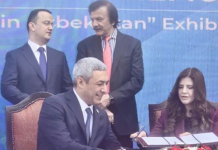Mian Anjum Nisar says move has shaken confidence of exporters, industry
KARACHI, MAY 4: /DNA/ – The Federation of Pakistan Chambers of Commerce & Industry’s (FPCCI) Businessmen Panel (BMP) has voiced strong criticism against the federal government’s abrupt and unilateral move to shift the tax system from the Final Tax Regime (FTR) to the Normal Tax Regime (NTR) for exporters, terming it a regressive policy decision that will deeply harm Pakistan’s fragile export sector.
Mian Anjum Nisar, Chairman of the BMP and former President of the FPCCI, expressed serious reservations about the sudden and non-consultative transition, stating that it has introduced a wave of uncertainty and confusion among the business community. He emphasized that this decision will adversely affect industrial operations, create obstacles for exporters, and undermine the country’s efforts to expand its export base.
He noted that the FTR had been a relatively efficient and predictable taxation system, especially designed to facilitate exporters, traders, and small-to-medium enterprises (SMEs). It allowed them to pay a fixed percentage of their income or turnover as tax, which was then treated as their final liability. This simplicity eliminated the fear of audits, notices, and excessive scrutiny, enabling exporters to focus their energies on production, expansion, and tapping international markets.
“The sudden shift from FTR to NTR, which has been imposed without any meaningful consultation with stakeholders, has badly shaken the confidence of exporters and industrialists,” Nisar said. “This move has disrupted the financial planning of exporters, as they now face complex and uncertain tax calculations, along with additional documentation requirements and exposure to audits. It is a direct blow to the predictability and stability that exporters depend on for long-term planning.”
He warned that this policy shift will act as a barrier to export growth, dragging exporters into a bureaucratic web of tax red tape. Instead of enabling them to concentrate on increasing exports, the government has now burdened them with excessive compliance requirements, time-consuming procedures, and the looming threat of tax-related harassment.
Mian Anjum Nisar stressed that the export sector is already operating under extremely challenging conditions, including high production costs, volatile exchange rates, increasing freight charges, and global competition. In such an environment, he said, the government should be introducing facilitative policies, not adding new administrative and financial burdens. According to him, the shift to the NTR will not only reduce export competitiveness but may also result in many small exporters exiting the formal sector altogether.
“Exporters were expecting incentives, relief measures, and market access strategies,” he remarked. “But instead, they have been handed an unpredictable and non-transparent tax regime that will severely undermine their operational efficiency and profitability.”
He also pointed out that under the FTR, the government was still able to collect a substantial and steady stream of revenue while maintaining a business-friendly tax culture. With the shift to the NTR, however, the risk of revenue leakage, disputes, and litigation is likely to rise due to the complexity and discretionary powers involved.
The BMP chairman criticized the lack of clarity in the implementation process, saying that exporters are confused about how their income will now be assessed. He warned that this confusion will increase reliance on tax consultants, add to compliance costs, and potentially expose exporters to exploitation by corrupt elements within the system.
“This change opens the door to arbitrary decisions by tax authorities, which increases the likelihood of harassment,” he said. “It also discourages formalization, as businesses that have only recently entered the tax net under FTR may now feel incentivized to go underground again.”
Nisar further argued that this move is inconsistent with the government’s own stated objectives of ease of doing business, digitalization, and export-led growth. “The Normal Tax Regime may make sense in theory, but in Pakistan’s current economic and administrative environment, it is highly impractical for exporters who need quick decision-making, low compliance burdens, and a level playing field in the international market,” he added.
He advised that instead of dismantling the FTR entirely, the government should have sought to improve and digitize it further, possibly combining transparency with simplicity. “There was room for reform, not for abolition,” Nisar said. “If revenue collection was a concern, the government should have broadened the tax base and improved enforcement, rather than burdening the compliant segment of society.”
The BMP urged the Ministry of Finance and the Federal Board of Revenue (FBR) to hold immediate consultations with trade bodies, chambers of commerce, and export associations to understand their concerns and re-evaluate the decision. Nisar said that the Businessmen Panel stands ready to provide input for a more balanced and practical tax regime that protects the interest of exporters and ensures steady revenue for the state.
He reiterated that a hasty, non-consultative, and opaque shift in tax policy is damaging not only in terms of business operations but also in terms of national economic direction.
The BMP has committed to raising this issue at every relevant forum and will push for the reversal of this policy. Leading business voices from across the country are aligning in opposition to the shift, underscoring the need for a tax system that encourages exports, supports economic stability, and fosters a cooperative relationship between the government and the private sector.

















